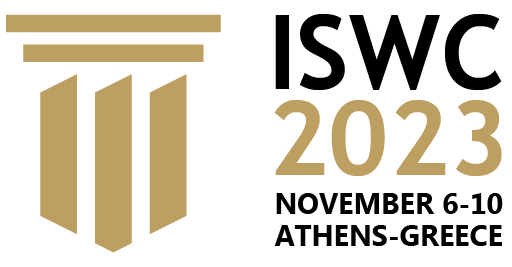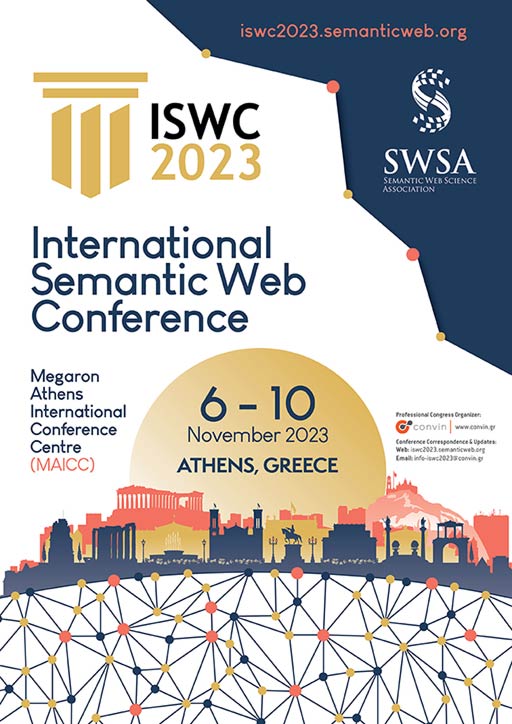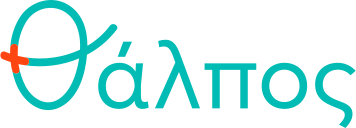| Organisers | Title | Date | Duration |
|---|---|---|---|
| First day | |||
| Raghava Mutharaju, Agnieszka Ławrynowicz, Pramit Bhattacharyya, Eva Blomqvist, Luigi Asprino, Gunjan Singh | 14th Workshop on Ontology Design and Patterns (WOP) 2023 | Nov 6th | FULL DAY |
| Jan-Christoph Kalo, Simon Razniewski, Sneha Singhania, Jeff Z. Pan | Knowledge Base Construction from Pre-trained Language Models (KBC-LM) | Nov 6th | FULL DAY |
| Muhammad Saleem and Axel-Cyrille Ngonga Ngomo | QuWeDa 2023: 7th Workshop on Storing, Querying and Benchmarking Knowledge Graphs | Nov 6th | Half Day (morning) |
| Bo Fu, Patrick Lambrix, Huanyu Li, Susana Nunes, Catia Pesquita | 8th International Workshop on Visualization and Interaction for Ontologies, Linked Data and Knowledge Graphs (VOILA) | Nov 6th | Half Day (afternoon) |
| Damien Graux, Fabrizio Orlandi, Emetis Niazmand, Gabriela Ydler & Maria-Esther Vidal | MEPDaW'23 - Managing the Evolution and Preservation of the Data Web | Nov 6th | Half Day (afternoon) |
| Second day | |||
| Pavel Shvaiko, Jérôme Euzenat, Ernesto Jimenez-Ruiz, Oktie Hassanzadeh and Cassia Trojahn | The 18th International Workshop on Ontology Matching (OM) | Nov 7th | FULL DAY |
| Mehwish Alam, Davide Buscaldi, Michael, Cochez, Francesco Osborne, Diego Reforgiato Recupero | Workshop on Deep Learning for Knowledge Graphs (DL4KG) | Nov 7th | FULL DAY |
| Arild Waaler, Evgeny Kharlamov, Steffen Staab, Baifan Zhou | 2nd International Workshop on Semantic Industrial Information Modelling (SemIIM) | Nov 7th | FULL DAY |
| Antonis Bikakis, Roberta Ferrario, Stéphane Jean, Béatrice Markhoff, Alessandro Mosca, Marianna Nicolosi Asmundo | SWODCH 2023 - 3rd International Workshop on Semantic Web and Ontology Design for Cultural Heritage | Nov 7th | FULL DAY |
| Lucie-Aimée Kaffee, Simon Razniewski, Kholoud Saad Alghamdi, Hiba Arnaout | Wikidata workshop 2023 | Nov 7th | Half Day (morning) |
14th Workshop on Ontology Design and Patterns (WOP) 2023
Website:
https://odpa.github.io/workshop-on-ontology-design-and-patterns/2023/
Date: Nov 6th
Duration: Full Day
Organizers:
Raghava Mutharaju
Agnieszka Ławrynowicz
Pramit Bhattacharyya
Eva Blomqvist
Luigi Asprino
Gunjan Singh
The WOP workshop series covers issues related to quality in ontology design and ontology design patterns (ODPs) for data and knowledge engineering in Semantic Web. The increased attention to ODPs in recent years through their interaction with emerging trends of the Semantic Web, such as knowledge graphs, can be attributed to their benefit for knowledge engineers and Semantic Web developers. Such benefits come in the form of direct links to requirements, reuse, guidance, and better communication. The workshop’s aim is thus not just: 1) providing an arena for discussing patterns, pattern-based ontologies, systems, datasets, but also 2) broadening the pattern community by developing its own “discourse” for discussing and describing relevant problems and their solutions. A recent development in the Semantic Web community is that the general idea of “pattern” has begun to appear in different but related forms, and at WOP 2023, we intend to continue to include these new trends.
Knowledge Base Construction from Pre-trained Language Models (KBC-LM)
Website:
https://lm-kbc.github.io/workshop2023/
Date: Nov 6th
Duration: Full Day
Organizers:
Jan-Christoph Kalo
Simon Razniewski
Sneha Singhania
Jeff Z. Pan
Language models (LMs), such as chatGPT, BERT, and T5, have demonstrated impressive impact on numerous AI applications. Research has shown that these models implicitly capture vast amounts of factual knowledge within their parameters, resulting in a remarkable performance in knowledge-intensive applications. The seminal paper “Language Models as Knowledge Bases?” sparked interest in the spectrum between language models and knowledge graphs, leading to a diverse range of research on the usage of LMs for knowledge base construction. This research includes:
- utilizing pre-trained LMs for knowledge base completion and construction tasks,
- performing information extraction tasks, like entity linking and relation extraction, and
- utilizing knowledge graphs to support LM applications.
In the first edition of the LM-KBC workshop, we aim to give space to the emerging academic community that investigates these topics, host extended discussions around the LM-KBC Semantic Web challenge, and enable an informal exchange of researchers and practitioners.
QuWeDa 2023: 7th Workshop on Storing, Querying and Benchmarking Knowledge Graphs
Website:
https://sites.google.com/view/quweda2023
Date: Nov 6th, morning
Duration: Half Day
Organizers:
Muhammad Saleem
Axel-Cyrille Ngonga Ngomo
The constant growth of Knowledge Graphs (KGs) on the Web raises new challenges for querying and integrating massive amounts of data across multiple KGs. Such KGs are available through various interfaces, such as data dumps, Linked Data Platform, SPARQL endpoints and Triple Pattern Fragments. In addition, various sources produce streaming data. Efficiently querying these sources is of central importance for the scalability of Linked Data and Semantic Web technologies. To exploit the massive amount of data to its full potential, users should be able to query and combine this data easily and effectively.
This workshop at the International Semantic Web Conference 2023 (ISWC 2023) seeks original articles describing theoretical and practical methods and techniques for fostering, querying, and consuming the Data Web
8th International Workshop on Visualization and Interaction for Ontologies, Linked Data and Knowledge Graphs (VOILA)
Website:
http://voila.visualdataweb.org/2023
Date: Nov 6th, afternoon
Duration: Half Day
Organizers:
Bo Fu
Patrick Lambrix
Huanyu Li
Susana Nunes
Catia Pesquita
A picture is worth a thousand words, we often say, yet many areas are in demand of sophisticated visualization techniques, and the Semantic Web is not an exception. The size and complexity of semantic data — Ontologies, Linked Data and Knowledge Graphs — constantly grows and the diverse backgrounds of the users and application areas multiply at the same time. Providing users with visual representations and intuitive interaction techniques can significantly aid the exploration and understanding of the domains and knowledge represented by semantic data.
There is no one-size-fits-all solution but different use cases demand different visualization and interaction techniques. Ultimately, providing better user interfaces, visual representations and interaction techniques will foster user engagement and likely lead to higher quality results in different applications employing semantics, and proliferate the consumption of Ontologies, Linked Data and Knowledge Graphs.
MEPDaW’23 – Managing the Evolution and Preservation of the Data Web
Website:
https://mepdaw-ws.github.io/2023/
Date: Nov 6th, afternoon
Duration: Half Day
Organizers:
Damien Graux
Fabrizio Orlandi
Emetis Niazmand
Gabriela Ydler
Maria-Esther Vidal
There is a vast and rapidly increasing quantity of scientific, corporate, government, and crowd-sourced data openly published on the Web. Open Data plays a catalyst role in the way structured information is exploited on a large scale. A traditional view of digitally preserving these datasets by “pickling and locking them away” for future use, like groceries, conflicts with their evolution. There are several approaches and frameworks (Linked Data Stack, PoolParty Suite, etc.) that manage a full life-cycle of the Data Web. More specifically, these solutions are expected to tackle major issues such as the synchronisation problem (monitoring changes), the curation problem (repairing data imperfections), the appraisal problem (assessing the quality of a dataset), the citation problem (how to cite a particular version of a dataset), the archiving problem (retrieving a specific version of a dataset), and the sustainability problem (preserving at scale, ensuring long-term access). During the past eight years, the MEPDaW workshop series has been gathering researchers from the community around these challenges. So far the series successfully published more than 50 research efforts allowing more than 60 individual authors to present and share their ideas.
The 18th International Workshop on Ontology Matching (OM)
Website:
http://om2023.ontologymatching.org/
Date: Nov 7th
Duration: Full Day
Organizers:
Pavel Shvaiko
Jérôme Euzenat
Ernesto Jimenez-Ruiz
Oktie Hassanzadeh
Cassia Trojahn
Ontology matching is a key interoperability enabler for the Semantic Web, as well as a useful technique in some classical data integration tasks dealing with the semantic heterogeneity problem. It takes ontologies as input and determines as output an alignment, that is, a set of correspondences between the semantically related entities of those ontologies. These correspondences can be used for various tasks, such as ontology merging, data interlinking, query answering or navigation over knowledge graphs. Thus, matching ontologies enables the knowledge and data expressed with the matched ontologies to interoperate.
The workshop encourages participation from academia, industry and user institutions with the emphasis on theoretical and practical aspects of ontology matching. On one side, we expect representatives from industry and user organizations to present business cases and their requirements for ontology matching. On the other side, we expect academic participants to present their approaches vis-a-vis those requirements. The workshop provides an informal setting for researchers and practitioners from different related initiatives to meet and benefit from each other’s work and requirements.
Workshop on Deep Learning for Knowledge Graphs (DL4KG)
Website:
https://alammehwish.github.io/dl4kg2023/
Date: Nov 7th
Duration: Full Day
Organizers:
Mehwish Alam
Davide Buscaldi
Michael, Cochez
Francesco Osborne
Diego Reforgiato Recupero
Over the past years there has been a rapid growth in the use and the importance of Knowledge Graphs (KGs) along with their application to many important tasks. KGs are large networks of real-world entities described in terms of their semantic types and their relationships to each other. On the other hand, Deep Learning methods have also become an important area of research, achieving some important breakthrough in various research fields, especially Natural Language Processing (NLP) and Image Recognition. In order to pursue more advanced methodologies, it has become critical that the communities related to Deep Learning, Knowledge Graphs, and NLP join their forces in order to develop more effective algorithms and applications. This workshop, in the wake of other similar efforts at previous Semantic Web conferences such as ESWC2018 as DL4KGs and ISWC2018, ESWC2019, ESWC 2020, ISWC2021, ISWC2022 aims to reinforce the relationships between these communities and foster inter-disciplinary research in the areas of KG, Deep Learning, and Natural Language Processing. As topics of interest, the three areas the focus of the workshop will be about are: 1) New Approaches for Combining Deep Learning and Knowledge Graphs, 2) Applications of combining Deep Learning and Knowledge Graphs, 3) Knowledge-Based Natural Language Processing
2nd International Workshop on Semantic Industrial Information Modelling (SemIIM)
Website:
https://sites.google.com/view/semiim-2023/home
Date: Nov 7th
Duration: Full Day
Organizers:
Arild Waaler
Evgeny Kharlamov
Steffen Staab
Baifan Zhou
Information Modelling (IM) has been in the spotlight of both academia and industry for decades. Important aspects of IM include methods and practices for representing concepts, relationships, constraints, rules, and operations to specify data semantics for a chosen domain of interest. In response to the IM challenge, several modelling paradigms and languages have emerged, ranging from ERM, UML, and ORM to OWL and Knowledge Graphs. These paradigms come with a wide range of systems that support the life cycle of information models.
With the trend of Industry 4.0, new challenges arise as a result of the overwhelming global industrial digitalisation. This digitalisation requires advanced information models and aims to achieve fully computerised, software-driven automation of production processes and enterprise-wide integration of software components.
In this workshop, we aim to gather researchers and practitioners who are working on addressing these challenges with the help of semantic technologies. We specifically invite IM experts who are excited and committed to pushing the frontiers of IM further and supporting the modern industry in its current technological transformation.
SWODCH 2023 – 3rd International Workshop on Semantic Web and Ontology Design for Cultural Heritage
Website:
https://swodch2023.inf.unibz.it/
Date: Nov 7th
Duration: Full Day
Organizers:
Antonis Bikakis
University College London, U.K.
Roberta Ferrario
ISTC-CNR, Italy
Stéphane Jean
University of Poitiers – ENSMA, France
Béatrice Markhoff
University of Tours, France
Alessandro Mosca
Free University of Bozen-Bolzano, Italy
Marianna Nicolosi Asmundo
University of Catania, Italy
SWODCH 2023 is the third edition of the International Workshop on Semantic Web and Ontology Design for Cultural Heritage. The purpose of the workshop is two-fold: First, it aims to gather foundational research work on the design of conceptual models, knowledge graphs, ontologies, and Semantic Web (SW) technologies for Cultural Heritage (CH) and the Digital Humanities (DH). A plethora of heterogeneous and multi-format data currently available in these domains asks for principled methodologies and technologies to semantically characterise, integrate, and reason with data, and to support their retrieval, management, analysis and visualisation. We also welcome philosophical and sociological analyses of data, knowledge representation models and modelling practices in CH and DH, possibly taking into account the social or historical dimensions of data. Second, SWODCH aims to bring together stakeholders from various fields of Computer Science and the Humanities, involved in the development and deployment of concrete SW solutions for CH, efficiently building, managing, exploring, visualising or mining CH knowledge graphs. More than 20 years after the beginning of this century, any SW solution should be designed according to the FAIR principles and the workshop supports the creation of datasets and applications that respect and are compliant with these principles.
Wikidata workshop 2023
Website:
https://wikidataworkshop.github.io/2023/
Date: Nov 7th, morning
Duration: Half Day
Organizers:
Lucie-Aimée Kaffee
Simon Razniewski
Kholoud Saad Alghamdi
Hiba Arnaout
Wikidata is an open knowledge base hosted by the Wikimedia Foundation that can be read and edited by both humans and machines. Wikidata acts as the central source of common, open structured data used by Wikipedia, Wiktionary, Wikisource, and others. It is used in a variety of academic and industrial applications.
In recent years, we have seen an increase in the number of scientific publications around Wikidata. While there are a number of venues for the Wikidata community to exchange, none of those publish original research. We want to bridge the gap between these communities and the research events and give the research-focused part of the Wikidata community a venue to meet and exchange information and knowledge.
The Wikidata Workshop 2023 focuses on the challenges and opportunities of working on a collaborative open-domain knowledge graph such as Wikidata, which is edited by an international and multilingual community. We encourage submissions that observe the influence such a knowledge graph has on the web of data, as well as those working on improving this knowledge graph itself. This workshop brings together everyone working around Wikidata in both the scientific field and industry to discuss trends and topics around this collaborative knowledge graph.


